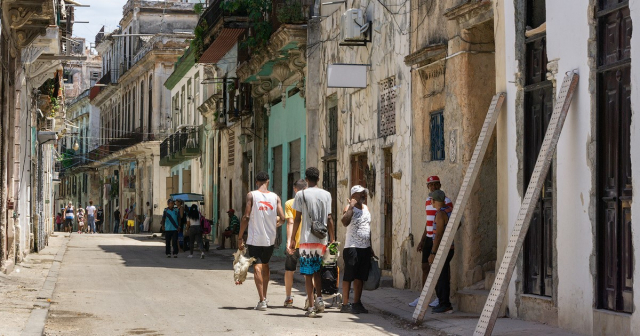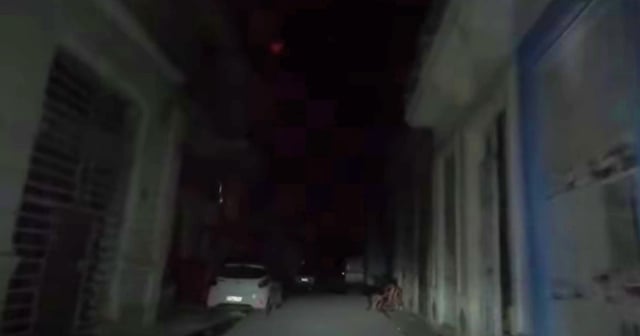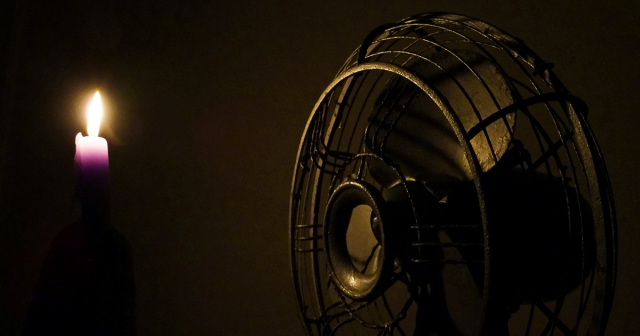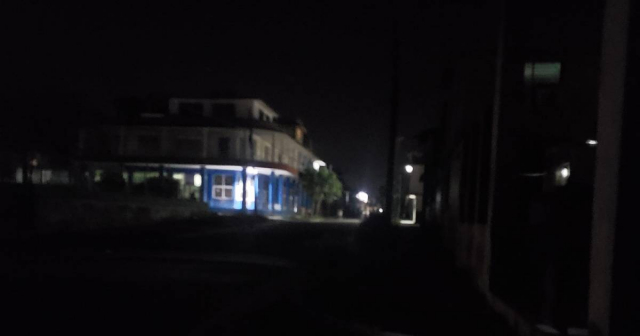
TheElectrical Union of Cuba (UNE) predicted for this Monday a deficit in generation capacity close to 600 MW during peak hours, a considerable amount that implies more hours of blackouts for Cubans.
“For the peak hour, an availability of 2,346 MW and a maximum demand of 2,855 MW is estimated, for a deficit of 509 MW, so if the expected conditions continue, an impact of 579 MW is forecast during this time,” said the UNE. in theirsocial networks.
As in previous forecasts, the deficit calculated by the state company that monopolizes the electricity service in the country may be exceeded by reality. As happened this Sunday, in which the UNE predicted a deficit of 394 MW in energy generation, which ended up being 436 MW, according to today's report.
This Monday, “unit 6 of the Mariel CTE, unit 1 of the Santa Cruz CTE and the Guiteras CTE unit are out of service due to a breakdown. Unit 4 of the CTE Cienfuegos, unit 1 of the CTE Felton and units 4 and 6 of the CTE Renté are under maintenance,” reported the company that runsAlfredo Lopez Valdes, recently appointed to replace Jorge Cepero Hernández.
The change in the company's management was accompanied by the dismissal of the Minister of Energy and Mines,Liván Arronte Cruz, and the appointment of theVicente de la O Levy in that wallet.
The remodeling of the leadership is part of the government's strategyMiguel Diaz-Canel, stated at the end of the year, with the main objectives of “minimizing blackouts before the end of the year”, “developing investments and maintenance in 2023 to achieve stability” and “changing the country's energy matrix.”
After four almost massive blackouts in just ten days in February, users of the National Electrical System (SEN) have given vent to their indignation and directly blame the authorities for a crisis that seems to worsen and have no end.
The situation became even more complicated withthe delay in the connection to the SEN of the Antonio Guiteras thermoelectric plant due to a new breakdown suffered on Friday, this time in a condenser.
That day, visiting Santa Clara, the Cuban leader expressed that the last few days had been "very difficult" in Cuba, due to the massive blackouts that have occurred.
Blaming theforest fires and high energy transfers from west to east due to service cuts, Díaz-Canel referred to "the very difficult days that our people are experiencing in February, based on the electrical situation in the country".
After a year with an extremely critical situation in the national electrical energy system (SEN), the Cuban authorities promised that in 2023 the outlook would improve and the frequent and prolonged blackouts that caused unrest and protests in the country would decrease.
At the beginning of the year, however, the government announced thatPower outages would return from February due to the need to carry out maintenance works on thermoelectric plants. At the end of February, the SEN is faltering and, rather than improving, it seems that worsening is possible.
What do you think?
COMMENTFiled in:






